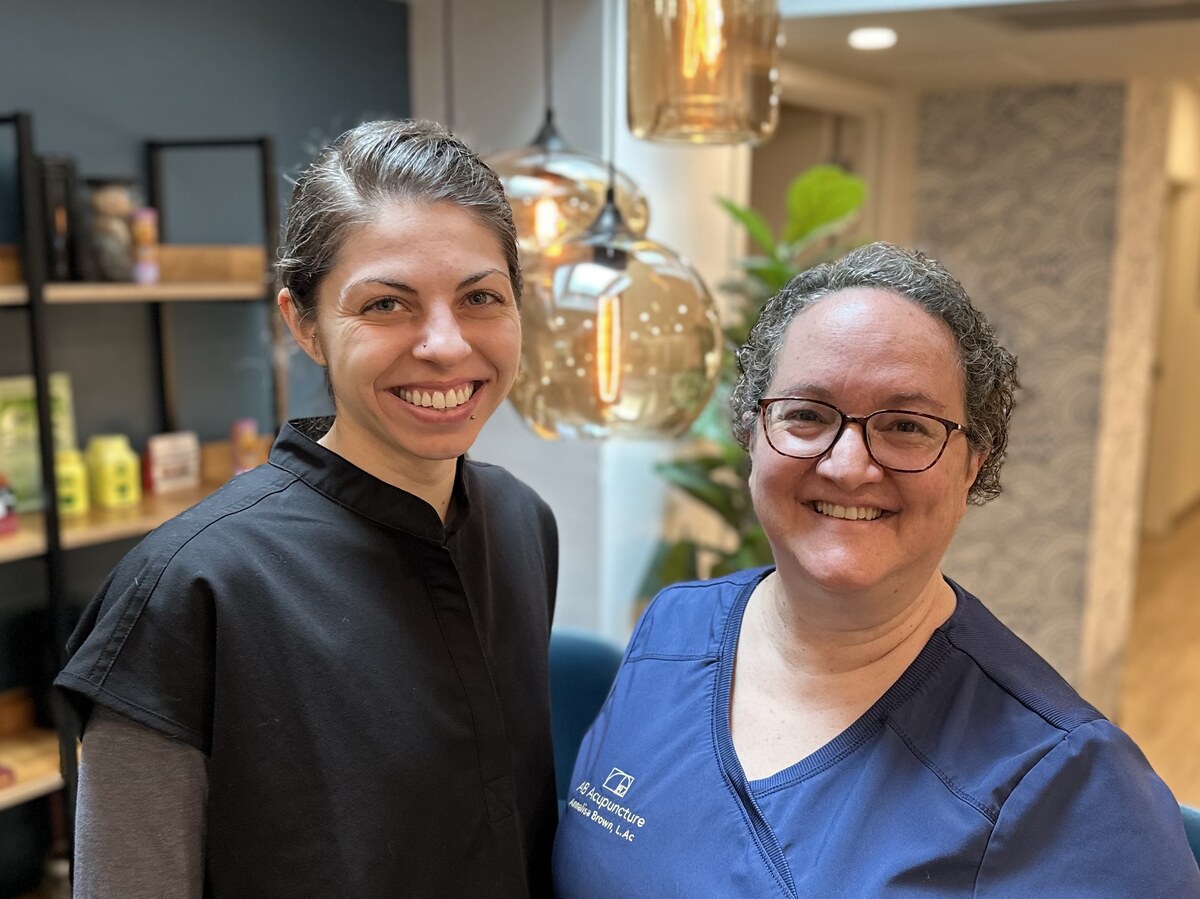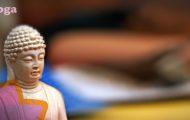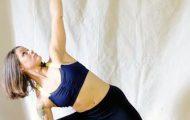
Carly Lepore, L.Ac (left) and Annalisa Brown, L.Ac
Right now, we are witnessing a reckoning across many of the systems we’ve long taken for granted. People are calling for change, and while our healthcare system itself may not be shifting just yet, the conversation around it certainly is. To truly rethink healthcare, we must first rethink our understanding of health itself.
The critical question is this: If our approach to treating health isn’t working, could it be because our very definition of health needs to change? This is where the time-tested, holistic philosophy of Chinese medicine offers a valuable and necessary perspective.
Chinese Medicine: Ancient Wisdom for Modern Problems
At the heart of Chinese medicine is the understanding that health is not merely the absence of disease. Let’s say that again: Health isn’t just the absence of disease.
The medicine I practice is designed to help the body achieve balance—homeostasis, if you will—across all aspects of our being: physical, mental, and emotional. These aspects are interdependent and are deeply influenced by the world around us. I often say that Chinese medicine fills the gap between aspirin and surgery.
This approach contrasts sharply with conventional allopathic medicine, which tends to isolate symptoms from the whole person. If you have a headache, you might be prescribed medication to dull the pain. Chinese medicine, however, asks: Why do you have a headache? Is it stress-related? Due to diet, sleep patterns, or emotional health? Ten different patients could come in with headaches and receive ten different diagnoses and treatments.
Chinese medicine identifies patterns of imbalance in the body—fluctuations in temperature, moisture, and circulation of fluids. Our bodies naturally maintain balance: if we’re too hot, we sweat; if we’re too cold, we retain heat; if we don’t move, our fluids stagnate. The same processes happen within us on a micro level. Herbal remedies are tailored accordingly: for example, if someone has a ‘cold’ disease like the common cold, we use warming herbs like ginger, cinnamon, or garlic.
One of the fundamental issues with Western medicine is that it pairs medicine to a disease rather than to a person. This is why medications only work for a certain percentage of people. It also isolates problem areas, often resulting in side effects. Take antibiotics, for instance: they are a ‘cold’ medicine, which is why they frequently upset digestion. However, if someone has a ‘hot’ condition, the cooling nature of antibiotics will not cause any side effects. (Digestive distress from antibiotics is easy to correct, if you have a serious bacterial infection, this is an important medicine to take)
By unlocking the basic key to understanding our bodies, we empower ourselves to make informed choices about our health—whether that means Eastern medicine, Western medicine, or a thoughtful integration of both.
AB Acupuncture: Where Tradition Meets Modern Healing
At AB Acupuncture, located on 72nd between Columbus & Amsterdam in W72 Wellness, my colleague Carly Lepore, L.Ac, and I provide personalized care that helps patients find relief and reclaim their health.
I, Annalisa Brown, L.Ac, specialize in chronic and acute pain, neurological injuries, stroke recovery, stress, and anxiety. Carly Lepore, L.Ac, a former dancer, focuses on pain management, sports injuries and recovery, women’s health, and herbal medicine. Together, we also address autoimmune conditions, digestive disorders, sleep disturbances, and more.
What We Do—Real Stories, Real Results
For those unfamiliar with acupuncture and traditional Chinese medicine, let me offer a few recent examples of what we do:
- A long-time patient came in for stress relief and casually mentioned persistent jaw pain she hadn’t thought to bring up. Her doctor had diagnosed TMJ, advised a mouth guard, and told her to expect months of discomfort. After one acupuncture session, her pain improved by 70%. Two days later, another treatment brought an additional 20% relief. She has two more sessions scheduled, but I doubt she’ll need them both.
- Another patient had suffered from sciatic-like pain radiating from her back down her leg due to a 50-year-old injury. She had been diagnosed with a ‘leaking disc’ and was taking multiple doses of NSAIDs daily. After starting treatment with Carly in January, she has reduced her visits to every other week and now only takes Advil once a week, if at all.
These are just a few tangible examples of what’s possible in our office. Other patients report improved sleep, fewer Crohn’s flares, reduced brain fog, recovery from long COVID, increased energy, and even enhanced strength in preparation for necessary cardiac surgery. We have just added a free subscription to an app that helps our patients learn and follow self care routines – diet, mindfulness, breath work and self massage that comes with a course of treatment. Our aim is to empower you in your health so you won’t need us.
A New Model of Healthcare—Not Either/Or, But Both
This is not an either-or debate. Allopathic medicine and Chinese medicine can—and should—coexist, complementing each other in powerful ways. For example, acupuncture is now widely used alongside conventional cancer treatments to help manage side effects like nausea and fatigue.
As we rethink healthcare, we must ask: Should our healthcare system simply react to problems as they arise, or should it guide us toward a deeper understanding of what it means to be well?
If we are truly ready to embrace change in our healthcare system, we must begin by broadening our definition of health itself.


